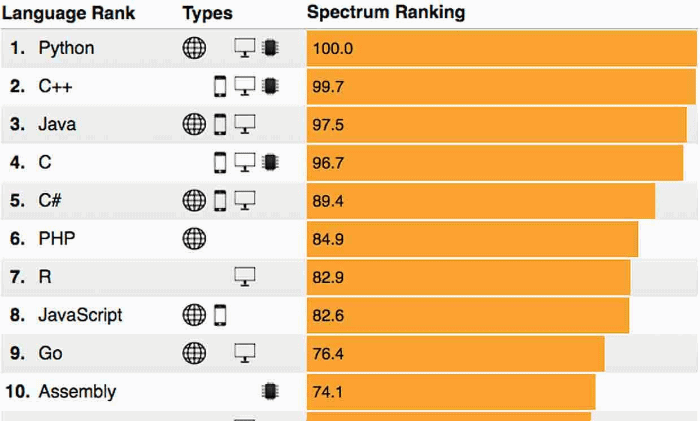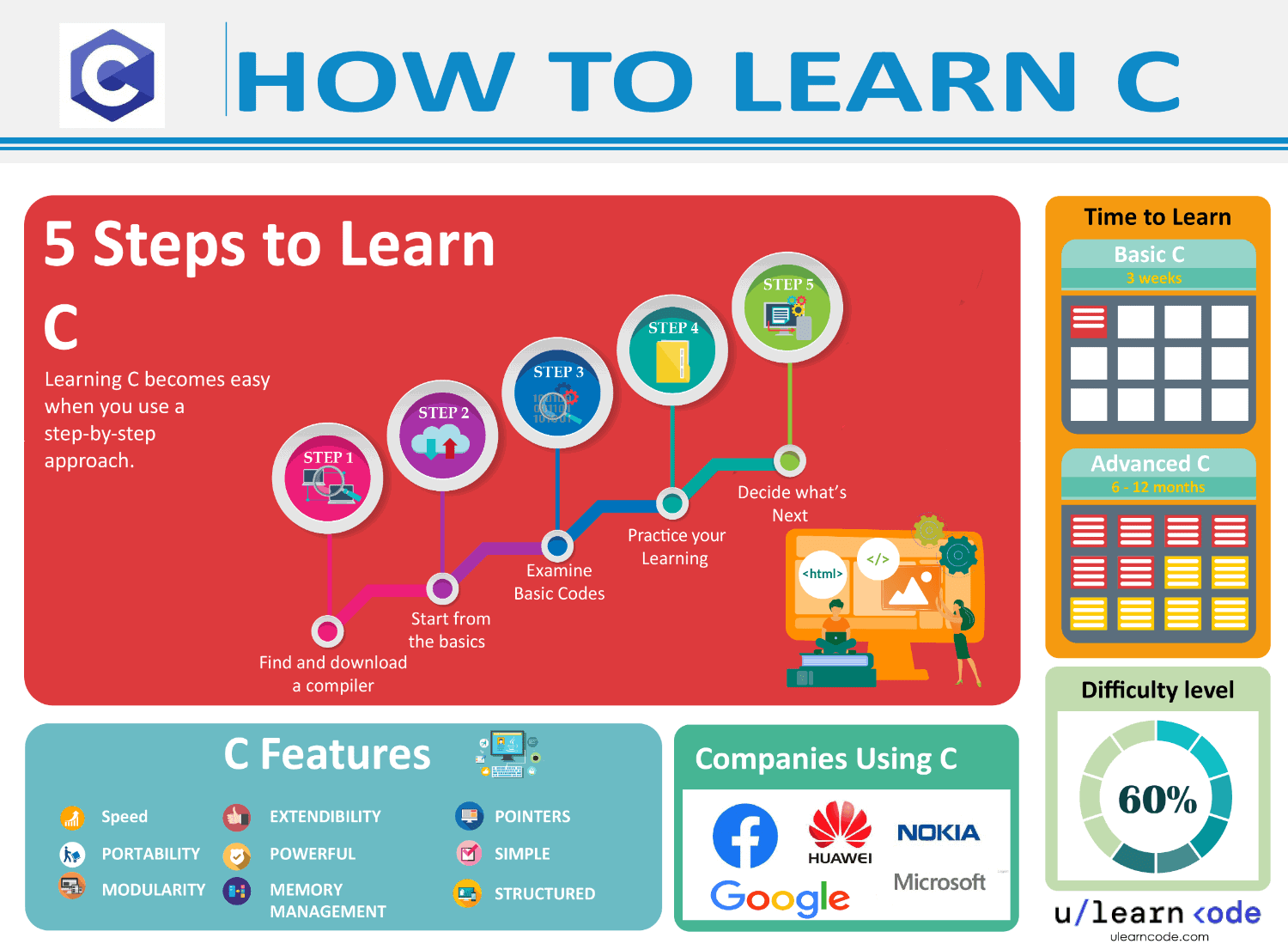Contents
It wouldn’t be wrong to consider C language the father of all programming languages. C is a gateway to learn the core concepts of programming that everyone ought to know before beginning a professional career. The language sets the base for programming as many Java concepts are also derived from C.
The importance of C is apparent, but is it still a popular language for new developers to learn? C is not a historical artifact; it teaches you core concepts of programming which is why it will not disappear anytime soon.
According to IEEE’s top 10 programming languages list, C stands at number 4 of all languages. Dennis Richtie, considered the father of modern computer programming, developed C.

C still has a number of implementations. It is primarily used in operating systems development and IoT technology. It is highly recommended to learn C if you are a complete beginner in programming and this article will provide you a complete roadmap to make your journey easier.
Is C Hard to Learn?
C is somewhat difficult and confusing for many beginners. Many programmers consider C to be a boring language, and particularly struggle to learn pointers. C teaches you how a computer machine and memory works. These concepts are daunting for many new programmers.
We can say that C is more of a traditional language but that does not mean that C is useless. Every beginner should start from a scripting language, and C falls in this category.
It is fun to write and execute different types of short codes but many people lose interest in C because they are unable to see any real-world applications of what they are learning.
If you are considering a career in C, you may want to think twice as there are very limited opportunities for programmers. However, if you are learning it to strengthen your programming base then you have made a great choice.
How Long does It Take to Learn C?
Unlike other high-level languages, C takes more time to learn. The time span is also dependent upon your definition of learning. The language is consistent with basic and simple concepts that are learnable in a small period of time.
On an average, it takes 7 weeks to learn the basics of C language for a fully dedicated beginner. C itself is not that complicated but other relevant topics such as system architecture, memory management, standard libraries and basic algorithms take a lot more time to learn.
The underlying concepts and basic topics such as functions, loops, if-else, basics of arrays, and printf/scanf all are learnable in a single week. Learning pointers, structs, and malloc/calloc takes more time because there are many complications in these areas.
How to Start Learning C

C is indeed a great base language to learn, but a roadmap is necessary to reduce complications. Here is a 5-step way to learn C fast and efficiently:
Step 1: Find & Download a Compiler
A compiler is a prerequisite for C code to be executed. The C compilers are totally free and a separate compiler option is available for each operating system. If you are a Windows user and you want to write and execute your code, Microsoft Visual Studio Express or MinGW are two of the best compiler options.
If you are a Mac user, XCode is the most reliable compiler option. Linux users mostly rely on gcc to compile and run their programs.
Step 2: Start from the Basics
If you jump into watching a C tutorial without covering the basics, you will never be able to learn the language. The basic concepts of C language include functions, loops, if-else, basics of arrays and printf/scanf. These concepts, commands and statements are learnable in a single month.
Once you are finished with the basics then you can level up by learning about pointers. You can easily learn all these concepts from the best C courses where instructors provide you a step-by-step guidance.
If you want to utilize free resources to cover up the basics concepts then here are a few tutorials and playlists to binge watch:
- C Programming For Beginners – edureka!
- C Programming Tutorial for Absolute Beginners – ProgrammingKnowledge
- C Programming Tutorial for Beginners – freeCodeCamp.org
Step 3: Examine Basic Codes
Once you have a strong grasp of basic concepts, find and examine pre-written codes in C. Check how those programs are written and try making your own amendments to improve the functionality. You can find a lot of such examples on Github or through Google.
Many codes will also include comments that you can read for a better understanding of the source code. Gain experience from example codes and apply it for yourself.
Step 4: Practice your Learning
C is all about learning the basic programming concepts and then writing fun codes to solve small problems. You can create a range of different applications by just utilizing the basic C knowledge. Try to create a C calculator, area finder or any other mathematical problem solver.
Write lengthy programs and compile them to check for errors. Analyze and fix these errors by finding solutions on C Forums. Lastly, explore and learn about C libraries and core concepts of this language.
Step 5: Decide What’s Next
C is just a beginning. If you want to jump in application development, then you must master other languages such as C++. You can now also easily learn Python, Ruby or PHP because many concepts in these languages are derived from C. Hence, it will be easier to learn these languages for starting a fresh career.
Bottom Line
C might be an old programming language, but it is the root of many new dominant high-level languages.
To be proficient in languages like Python, Java and PHP, you should strengthen your base with C as a beginner. A strong programming foundation will make you much more confident than any regular developer.